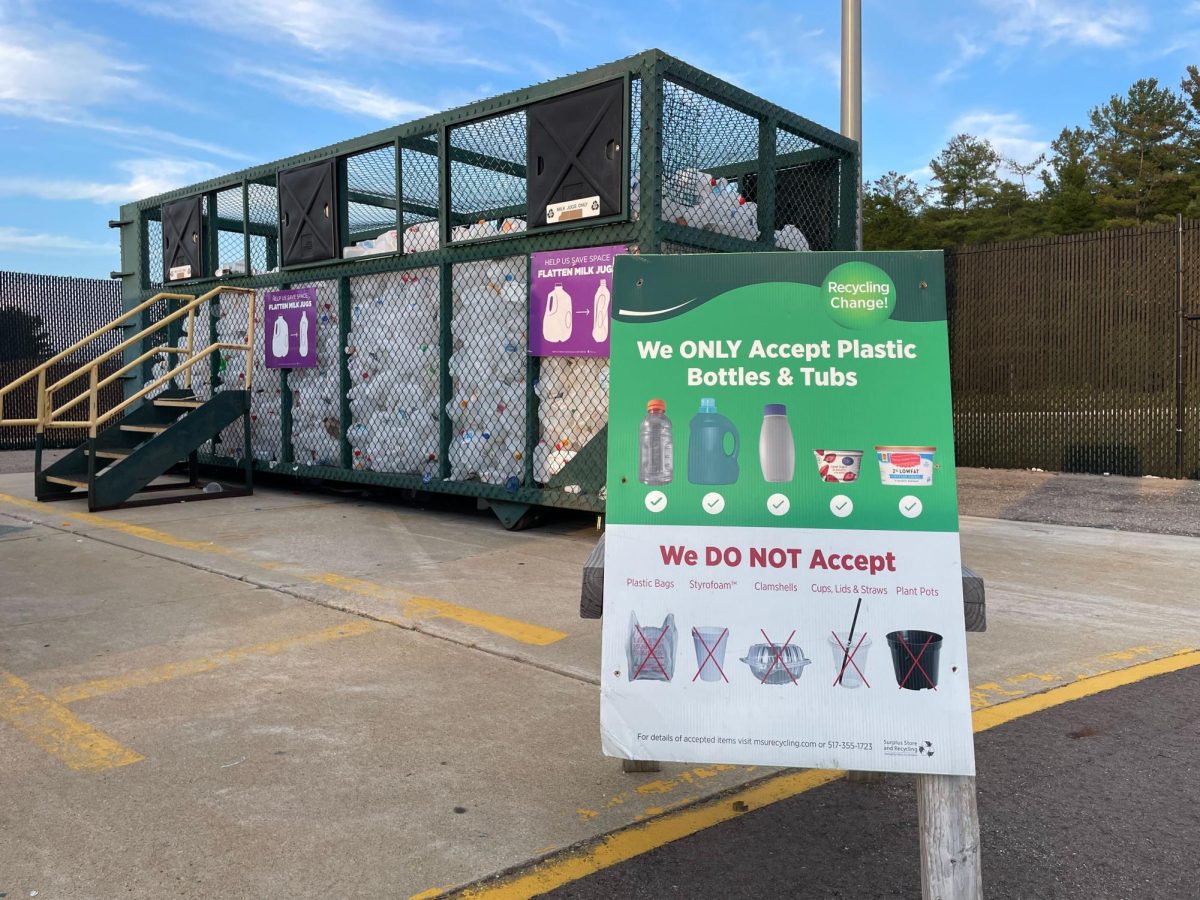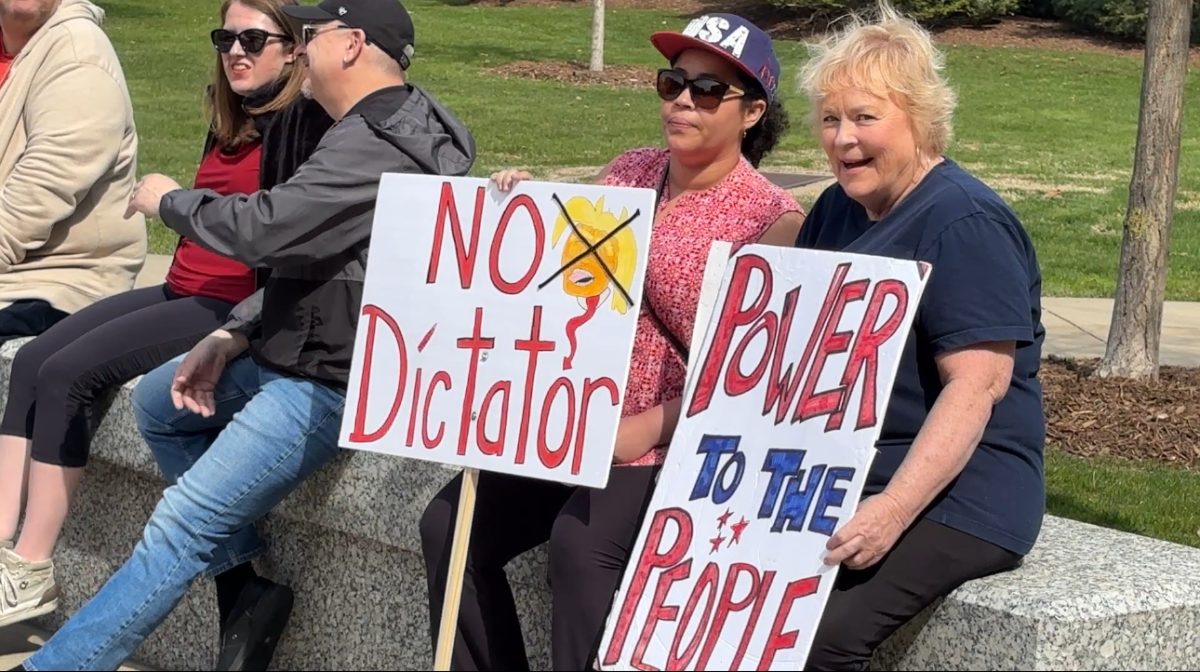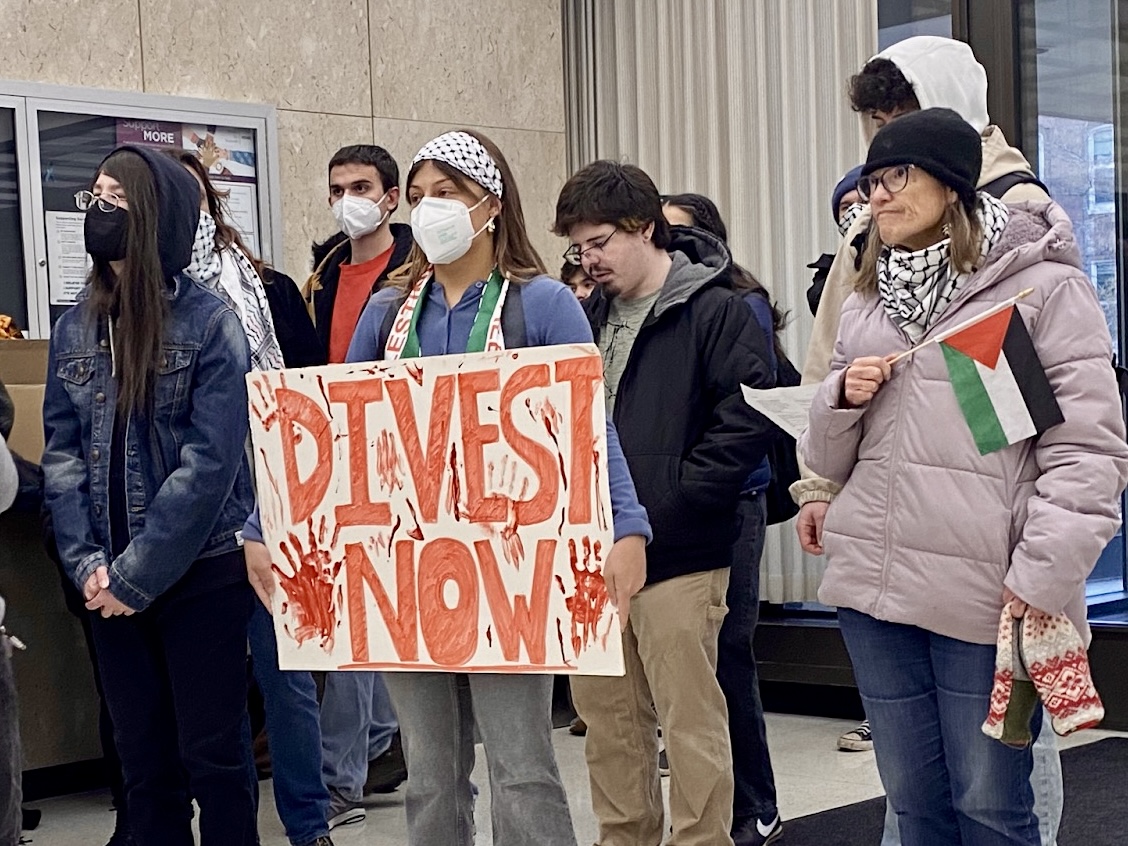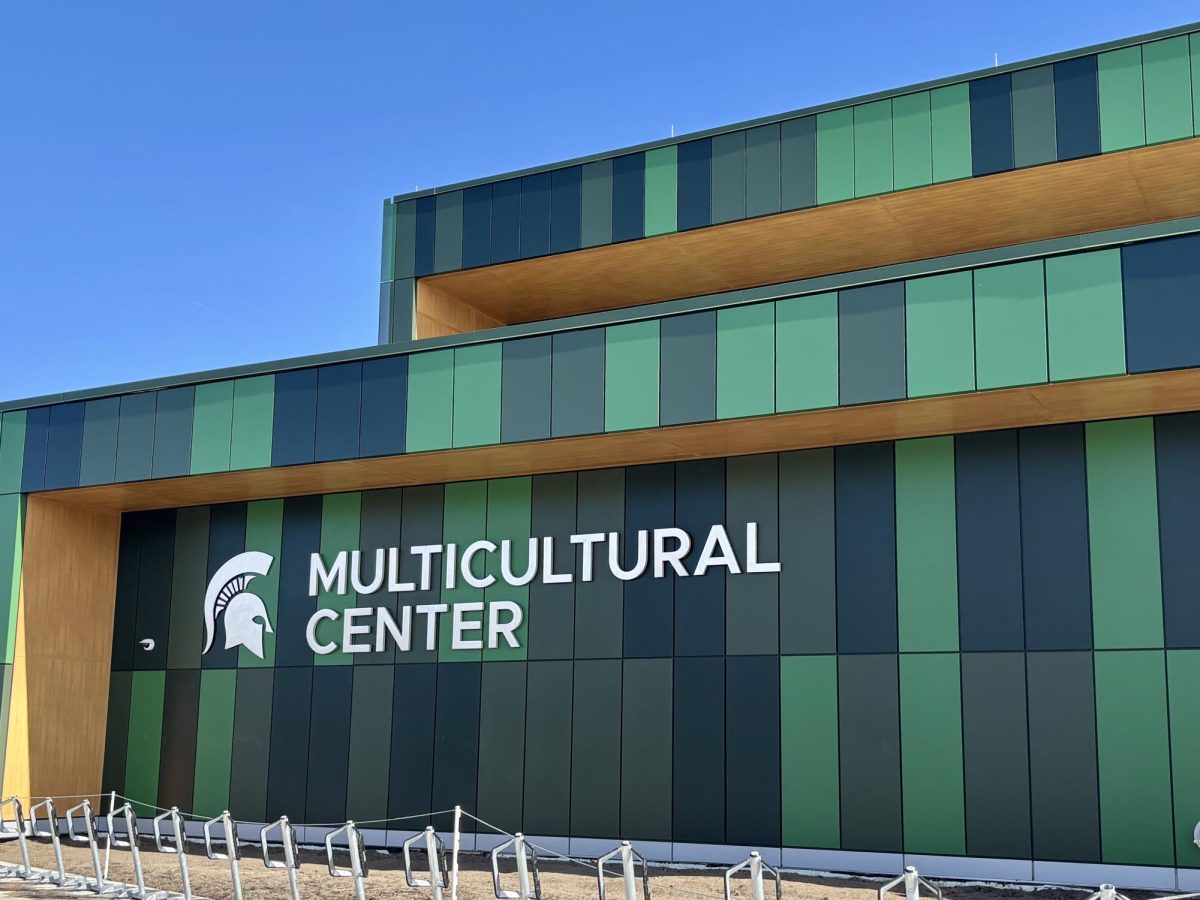East Lansing residents often find themselves standing over the recycling bin, holding various plastic items, asking the same question: Can I recycle this?
“1 and 2 you can recycle but 5 and 6 you can’t,” said East Lansing resident, Fred Meyer while uncapping a dozen empty milk cartons and throwing them into the high-density polyethylene (HDPE) plastic collection bin. “It’s too confusing for the consumer.”
With rules that vary by location, numbers that don’t mean much to the average consumer and no guarantee that what you’re putting in the bin will be recycled, people often feel daunted by plastic recycling.
To prevent more plastic from being produced, discarded and dumped into landfills, recycling is meant to “repurpose, reuse and reprocess plastic into a commodity for the manufacturing of new products,” said Jeffry Krcmarik, a recycling specialist at the Michigan Department of Environment, Great Lakes and Energy (EGLE).
“The state of Michigan has a pretty poor recycling rate,” said Dave Smith, the waste reduction coordinator at MSU Surplus Store and Recycling Center. “The state over the last four or five years has really increased efforts to boost recycling across the state.”
According to the 2022 EGLE study, the recycling rates in Michigan have increased from 14.25% to 21%. A 2022 Environmental Protection Agency study found that the average recycling rate is 32.1%.
To increase recycling rates, Michigan and the city of East Lansing have been awarded grants to improve material management.
“We’re having more curbside carts, more collections and more people having access every year since we started the grant program in 2018,” Krcmarik said.
With more access to recycling, the emergence of new technology and equipment upgrades, strides are being made to promote more sustainability in East Lansing.
“We’ve all seen our oceans,” Meyer said, referring to how damaging plastic waste is to our environment.
Meyer said he feels passionate about saving our planet. In turn, Meyer regularly drops his recycling off at the MSU Surplus Store and Recycling Center, where plastic separation guidelines are made clear.
“We have some really good trash companies in Michigan,” Meyer said.
The MSU Surplus Store and Recycling Center offers pick-up and drop-off services to students and locals and serves as a Material Recovery Facility (MRF). The city of East Lansing does curbside pick-up and offers recycling drop-off at the East Lansing Public Works Department. Those collected materials go to Emterra, an MRF that provides recycling to both Lansing and East Lansing residents.
Smith said that there are many challenges when it comes to plastic recycling. One of which is the lack of clarity on what can or can’t be recycled.
Smith said that citizens need to make sure the “community knows exactly what we accept and how it needs to be.”
Smith compared the plastic recycling market to the stock market, with constant fluctuation in value. Number 1, PET and number 2, HDPE have a consistent and reliable market meaning most recycling centers accept it. This is typically found in milk jugs, water bottles and food containers. Smith said that he has “very high confidence that those materials are being turned into a new product,” compared to numbers 3-7, which are also less profitable.
The Know It Before You Throw It campaign, created by EGLE, was made to encourage recycling in Michigan and to educate Michiganders on proper recycling. Putting the right materials in the bin is important as recycling incorrectly can have lasting negative effects.
Wish Cycling, the well-intentioned practice of putting the wrong materials, such as non-recyclable or dirty items, in the recycling bin is common but it can cause contamination to everything else in the recycling stream.
“If you throw something in there that doesn’t belong, it’s a waste of money,” Krcmarik said. “It’s gonna end up in the landfill anyway.”
According to a contractual agreement between the city and Emterra, the MRF can reject loads with over 8% of contamination, causing recyclable items to also be sent to landfills additionally charging the city a disposal fee.
Krcmarik is optimistic about the future of recycling due to the artificial intelligence technology that can speed up the sorting process and reduce contamination. He said that robotics will soon be able to separate materials by color, making homogenous commodities that are much more valuable than mixed.
Smith said that AI and robotic innovations have made the sorting process faster, easier, safer and more efficient. AMP robotics have been installed in the local MRFs and can sort with an average of 80 picks per minute according to The U.S. Plastics Pact website.
Residents can review the East Lansing Drop Off Guide, MSU Drop Off Center Guide or their city’s website and to make sure everything they toss is clean and dry.
“It doesn’t have to be perfectly clean, but it should be rinsed to get the vast majority of the residue out and then put in your recycling bin dry,” Smith said.























